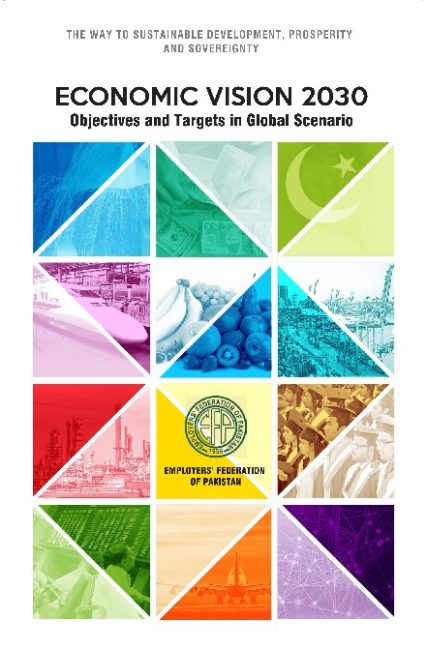EFP Economic Vision 2030
As the first published manuscript of EFP Economic Council, the Economic Vision 2030, attempts to vividly paint the dream of an industrialized Pakistan that thrives on the backbone of technological advancement, rapid development of M/SMEs and a competitive and fully-capable business climate accommodable for Greenfield ventures.
The vision document takes the reader back during the golden era of Mughal Dynasty, when Hindustan was a pristine location for trade and investment. The great many economic and administrative measures had allowed its economy to expand up to one-fourth of China’s and annual tax collections twice that of Europe. However, later when industrial revolution came about and the mighty British starting building vast networks of rail and road, the subcontinent could benefit only very little in terms of social development and instead had most of its wealth discreetly looted out of the country through the new channels of trade created. In the aftermath, the GDP fell down to 1 percent, and India was transformed from an exporter of processed goods, to an agrarian-backed source of raw materials for the world; mired by inefficient import substitution and protectionist policies, which further pushed down poverty.
The very foundation of the framework of Vision 2030 is themed on estimates linked to “future” economic planning and policy-making motivated by efficiency-driven investment and knowledge-based trade and has stringently emphasized on the urgent need to depoliticize all projects like the US$50 billion China-Pakistan Economic Corridor (CPEC) that rely heavily on exploitation of natural resources and somewhat question sovereignty of motherland.
The Board of the EFP Economic Council is fully prepared to face the warrying economic challenges and to support the government and its diplomatic missions and statesmen by lobbying at both national and international fronts to further the cause of a prosperous, transparent and industrialized Pakistan.

